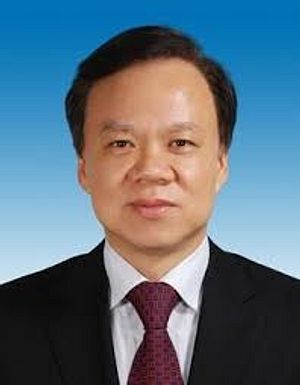One week after the sudden dismissal of Zhou Benshun, party secretary of Hebei, for “serious violations of the Party discipline and the state law” on July 24, it was announced that Zhao Kezhi, party secretary of Guizhou, had been appointed party secretary of Hebei.
A native of Shandong, Zhao has previously served as a provincial leader in three provinces. He was appointed vice governor of Shandong in February 2001 and was promoted to the executive vice governor of Jiangsu five years later. In August 2010, he was transferred to Guizhou as acting governor and made governor the following month. After his partner, Li Zhanshu, party secretary of Guizhou, was transferred to Beijing as the executive deputy director of the General Office, Zhao took over as party secretary of Guizhou in July 2012.
The person who has missed out in this round of reshuffles is Zhang Qingwei, governor of Hebei. Born in November 1961, Zhang is almost eight years younger than Zhao. But he obtained ministerial rank much earlier than Zhao. He was appointed chairman of the Commission for Science, Technology and Industry for National Defense (COSTIND) in August 2007 at the age of 45, while Zhao was promoted to the same rank three years later at the age of 57.
In terms of the seniority on the CCP Central Committee, Zhang is also a whole decade ahead of Zhao. Zhang was made a full member of the 16th Central Committee in 2002 at the age of 41. He has been a full member of the 17th and 18th Central Committees. But Zhao did not enter the CCP Central Committee until 2012. He was made a full member of the 18th Central Committee in his capacity as governor of Guizhou.
Moreover, three of Zhang’s immediate predecessors have been promoted to provincial party positions. Guo Gengmao, governor of Hebei from October 2006 to March 2008, is now party secretary of Henan. His successor, Hu Chunhua, is now party secretary of Guangdong and a Politburo member. Hu’s successor, Chen Quanguo, is party secretary of Tibet. None of them served as governor of Hebei for more than two years. Zhang Qingwei has been governor of Hebei for almost four years.
At the age of 62, Zhao might very well follow the steps of some of his predecessors such as Zhang Qingli (currently vice chairman and secretary general of the National Committee of the Chinese People’s Political Consultative Conference) by having Hebei be his last tour of duty before a glorious handshake. Zhang, on the other hand, may not necessarily have to wait for too long to get another chance to be promoted to the provincial party secretary position.
The real winner of this round of reshuffles, though, is Chen Min’er, governor of Guizhou. He was promoted to party secretary of Guizhou on the same day as Zhao. Chen’s political credentials don’t compare to those of Zhang but he enjoys a huge advantage as one of Xi Jinping’s confidants.
Chen worked closely with Xi in Zhejiang for four years and four months. During Xi’s stint in Zhejiang, Chen was a standing member and the director of the Propaganda Department of the Zhejiang Provincial Party Committee. Under his charge, Zhejiang Daily, the newspaper of the Zhejiang Provincial Party Committee, carried a series of articles from February 25, 2003 to March 25, 2007 by an author named “Zhexin,” the pen name of Xi Jinping.
Chen was transferred to Guizhou in January 2012 and was promoted to governor of Guizhou one year later. He is a full member of the 18th Central Committee and has only been governor of Guizhou for two and a half years. With this promotion, he would be qualified to compete for a seat on the Politburo in two years.
A native of Zhejiang who has spent most of his political career in his home province, Chen is a good representative of a Zhejiang clique in Chinese politics. Born in September 1960, Chen is the first member of the Zhejiang clique to emerge as a sixth generation leader. It is likely that he could become a front-runner as Xi’s successor in another five years.
































